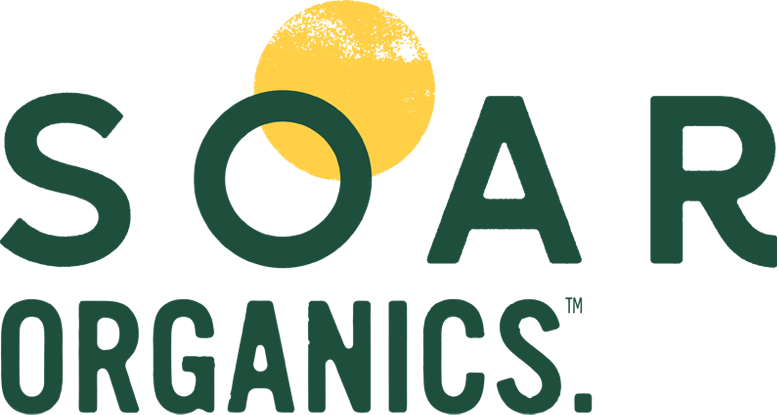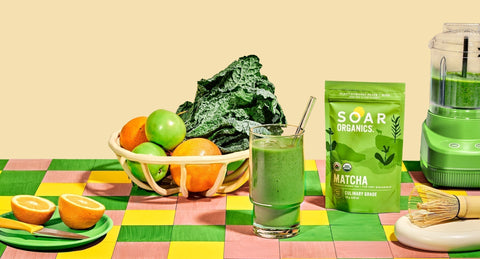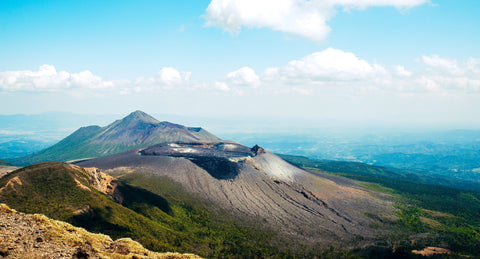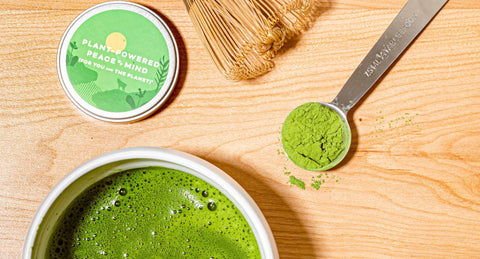When we started Soar Organics, we knew we wanted to deliver a matcha product our community could trust consuming every day. We’re passionate about quality and that’s why we’re happy to invest in third-party testing. As a result, Soar Organics has some of the most stringent third-party testing standards in the entire matcha niche!
To take it one step further, we share the results openly with our customers. Go ahead and visit any product page on our website and under the "Benefits & Testing" tab you'll see a link that says "Certificate of Analysis" with our most updated test results – full transparency!
In this blog we’ll briefly touch on some of the different contaminants we test for and provide some useful tidbits along the way.
What contaminants do you test for?
As of now Soar Organics is testing for:
- Radiation (Cesium-134, 137 and Iodine-131)
- Heavy Metals (Arsenic, Cadmium, Lead and Mercury)
- Pesticides (500+)
- Mycotoxins (Aflatoxin B1, B2, G1, G2 and Ochratoxin)
- Microbiology (E Coli, Salmonella)
All testing is done by a third parties Eurofins Labs & Seikan Kensa Centre – leaders in the food product testing space. Rest assured, no contaminants have been detected in any of our matcha or hojicha products at the limits we're testing for. We can sip to that!
How do you set your testing limits?
We leverage many resources to determine our baseline testing LOQs (limits of quantification). We consider guidelines from government bodies, health organizations and various scientific literature. Consumption rate is also a key factor with food products. Our ultimate goal is to ensure your daily cup of tea (or two) can be enjoyed with added peace of mind!
What are heavy metals?
Heavy metals are naturally occurring elements that can be found in the environment. Crops can absorb heavy metals from soil, water and even air pollution. While some heavy metals, such as iron and zinc, are essential for our bodies in small amounts, others like lead, cadmium, and arsenic can be toxic at certain levels.
How can heavy metals contaminate matcha?
Matcha is made from the leaves of the Camellia sinensis tea plant, which absorbs nutrients from the soil. If the soil is contaminated with heavy metals, the tea leaves can also become contaminated. Additionally, certain agricultural practices, such as the use of contaminated water or fertilizers, can further contribute to heavy metal accumulation in matcha.
How can I avoid heavy metal intake?
Completely avoiding heavy metals is difficult as there are often trace amounts in many everyday foods such as fruits, vegetables, legumes, rice and even chocolate! However, limiting exposure is possible with smart choices, such as opting for organic foods and choosing brands with third-party testing initiatives with verifiable limits.
Did you know heavy metal tolerance can vary by body weight? This is why children can be particularly sensitive to heavy metal intake.
Why do you test your matcha for radiation?
Matcha is primarily sourced from Japan, where the Fukushima nuclear disaster occurred in 2011. This event released radioactive materials into the surrounding environment, including the soil and water.
The good news – Soar Organics partner farms are over 500 kilometers away from where the Fukushima disaster took place, and as further supported by our product testing certificates, there are no traces of radiation in our matcha!
What about mycotoxins (aka toxic mold)?
We've got that covered, too. In fact, Soar Organics is one of the only matcha brands in North America to test for mycotoxins! If you'd like to learn more about mycotoxins and why we test for them, check out our dedicated blog post on that here.
At the end of the day, we know how much our customers care about what they put into their bodies. That's why we'll continue to invest in third-party testing because 'peace of mind' matters – it's in our slogan!
Happy sipping, everyone.



